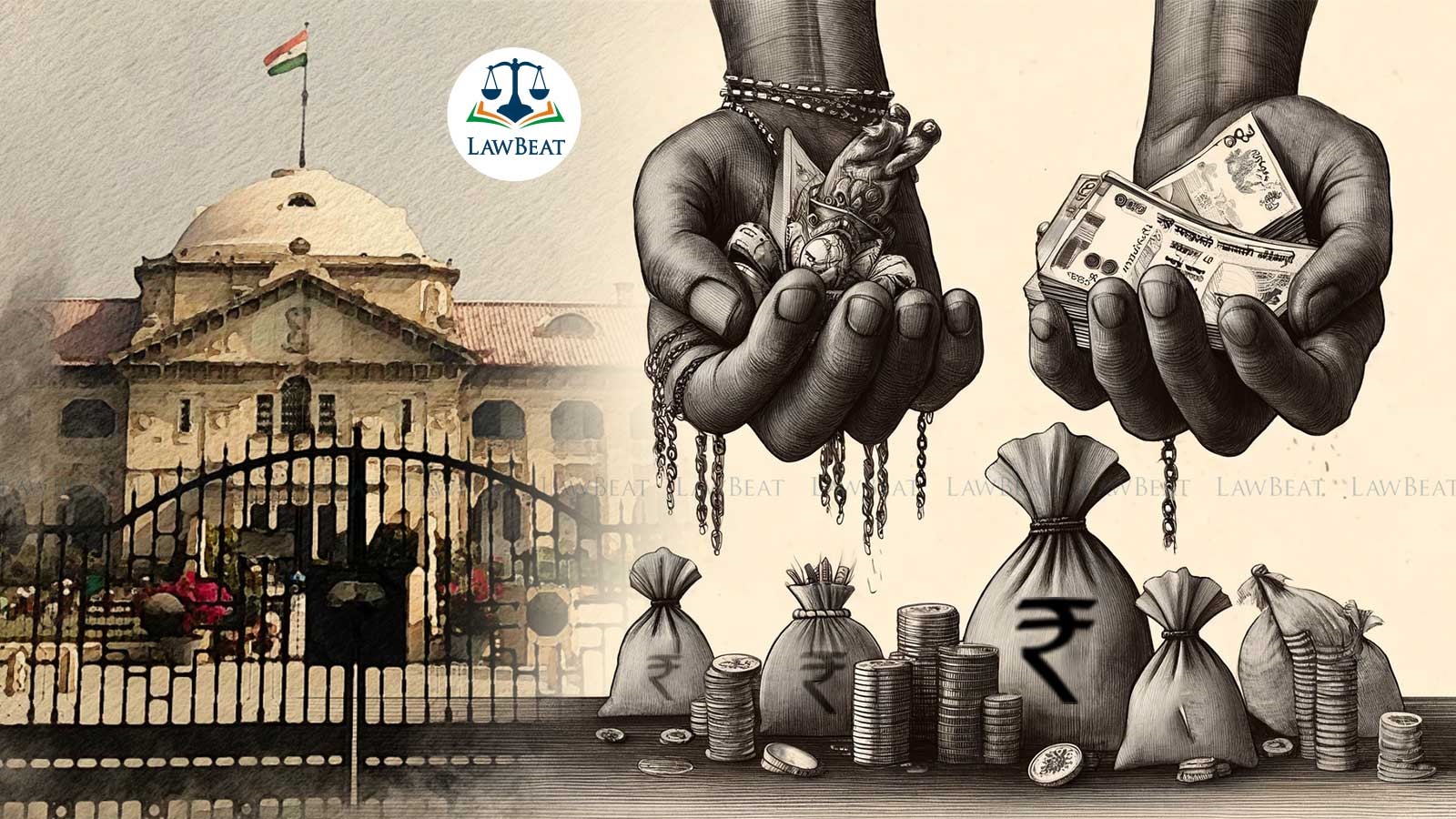'Wife May Have Attempted Self-Immolation': Allahabad HC acquits husband in dowry harassment and attempt to murder case

Court held that the possibility of the woman attempting self-immolation to pressure her husband into dropping a sale-cancellation proceedings could not be ruled out entirely. It suggested that, out of sheer frustration, she might have poured oil on herself and set herself ablaze
The Allahabad High Court recently overturned the conviction and sentencing of a man accused of dowry harassment and attempting to murder his wife.
A division bench comprising Justices Rahul Chaturvedi and Mohd. Azhar Husain Idrisi allowed the appeal filed by Sajid, who had been found guilty in 2019 under Sections 498A, 307/34, and 323/34 of the IPC, as well as Section 4 of the Dowry Prohibition Act, by the Additional Sessions Judge/FTC, Hapur. Among other penalties, Sajid had been sentenced to 10 years of rigorous imprisonment for attempted murder.
The FIR in this case was lodged by the father of the deceased woman, naming her husband Sajid, her father-in-law, mother-in-law, and brother-in-law as accused. According to the FIR, the woman married Sajid about 15 months prior and received a dowry of Rs. 51,000 in cash, a motorcycle, gold and silver ornaments, and various household goods from her father.
However, the FIR stated that the groom's family was dissatisfied with the dowry and began to target the woman for bringing insufficient dowry. She was subjected to constant cruelty and maltreatment, including physical abuse, leading to significant frustration and agony. The groom's family repeatedly demanded an additional dowry of a four-wheeler and Rs. 2,00,000 and there was also a dispute regarding a plot measuring 200 yards.
In 2012, the woman's father was informed that she was being physically abused by her in-laws. After visiting her, he later received news that the accused had poured oil on his daughter and set her on fire. The father claimed that although she did not die, she was taken to Meerut, where she revealed that all the accused had attempted to kill her by burning her.
The trial court held the husband guilty in the matter, however, it acquitted the remaining accused persons.
The high court observed that, according to the woman's statement, she never reported any dowry demands by her husband or his family to her parents or the police during her marriage.
The woman sustained burn injuries on her neck and hand, covering about 40% of her body, but her hair remained unburned. Notably, it was her brother-in-law who brought her to the hospital, the high court noted.
The high court also considered the husband's statement that he had purchased a 200-yard plot in his wife's name. Due to her father's poor financial condition, the wife allegedly sold the plot secretly to someone else. Following this, the husband filed a sale cancellation suit, which was pending at the time of the alleged burning incident.
Additionally, a neighbor of the couple testified that there were no incidents of quarrels between Sajid, the woman, or her in-laws, court pointed out.
The high court observed that "it is a judicial propriety that the judge should decide a case with a open mind and not with a pre-conceived notion and thereafter, twist the testimonies whimsically to justify his conclusion".
Court emphasised that in the present matter, the trial judge selectively chose facts that aligned with a predetermined conclusion to convict the husband, Sajid.
The division bench opined that this approach would result in grave injustice to the husband.
The bench pointed out that the records indicated the couple had been living separately from the husband's family after their marriage. Thus there is no question of demanding the additional dowry by them, it held.
Furthermore, the court highlighted that the doctor who examined the woman after the burning incident did not detect any smell of kerosene oil on her body.
The court opined that it appeared the woman and her father had dishonestly fabricated the story about the purchase of two plots by her father and alleged attempts by her husband to usurp those plots. The court concluded that both the father and daughter had manipulated the facts of the case, rendering their entire testimony untrustworthy.
The court held that the possibility of the woman attempting self-immolation to pressure her husband into dropping the sale-cancellation proceedings could not be ruled out entirely. It suggested that, out of sheer frustration, she might have poured oil on herself and set herself ablaze.
Therefore, court allowed the husband's appeal and quashed the trial court's judgment of conviction and sentence.
Case Title: Sajid v. State of UP
